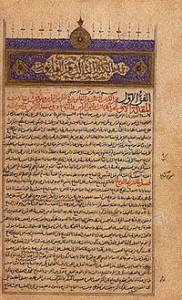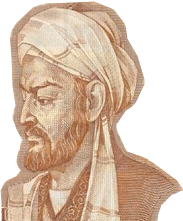Ziauddin Sardar’s Desperately Seeking Paradise: Journeys of a Sceptical Muslim chronicles his pilgrimage towards an authentic, rational Muslim community. Sardar, a journalist and columnist of enviable talent, has been sought after by Muslim think-tanks for much of his career; so he does not only provide a priceless insight into the Muslim mind, but a ringside seat to many of the events which have shaped the ugly conflict between secularism and Islamic world. This book also undermines some horrendously ill-informed and myopic polemics: urban myths of a monolithic Islamic worldview which continually plots and strives against the West.
 Sardar was educated in English Universities during the radical 1960s and 1970s; yet as the son of devout Pakistani immigrants he knew that crude secularism cannot make room for virtue and piety, and that both are essential to human flourishing. Acutely aware of the limitations of materialism, globalisation and consumerism, Sardar hoped that Islam could provide a better way than capitalism and communism. He believed that Muslims could outflank secularist materialism by founding political community which married social justice and spiritual commitment. Yet, just as Sardar sought a Muslim Enlightenment, various Islamic social movements conspired to create a new Dark Age for Islam.
Sardar was educated in English Universities during the radical 1960s and 1970s; yet as the son of devout Pakistani immigrants he knew that crude secularism cannot make room for virtue and piety, and that both are essential to human flourishing. Acutely aware of the limitations of materialism, globalisation and consumerism, Sardar hoped that Islam could provide a better way than capitalism and communism. He believed that Muslims could outflank secularist materialism by founding political community which married social justice and spiritual commitment. Yet, just as Sardar sought a Muslim Enlightenment, various Islamic social movements conspired to create a new Dark Age for Islam.
Early in his career he had the opportunity to interview the Pakistani revivalist and scholar Maulana Sayyid Abulana Mawdudi. Sardar was impressed with the Maulana’s insistence that Islam touches on every aspect of an individual’s life; he also agreed that a society cannot be reformed unless individuals first reform themselves. Political reform was useless without virtue and personal transformation. However, Sardar was troubled by Mawdudi’s attitude to women and the naïve belief that Shariah law offered a ready-made framework which could solve all of humanities problems. He doubted that a thousand year old law code could deliver justice and peace in the modern world.
Desperately Seeking Paradise argues that Shariah is not “the one stage process for delivering Muslim society from the era of neo-colonialism to the paradise of Islam.” Shariah is too sexist, too oppressive and monolithic to reflect the diversity of Islamic thought. It is merely the ossified practices of ancient jurists; if all humans are fallible then so are their legal rulings. In any case, “law is a dynamic, changing institution and the Qu’ran contains remarkably few legal injunctions. A book of eternal guidance, as the Qu’ran describes itself, cannot be reduced to a fixed set of laws”.
For Sardar the metaphors and images of the Quran, and the example of Muhammad’s actions in their historical context, are the only revelation that Muslims need. He is horrified by Deobandi madrassas in Pakistan, where the curriculum focuses on rote learning of the Qu’ran, the Hadith and the legal rulings of eighth century jurists; and a wish for an Amir – a pure leader – to impose the Shariah of Islam on their nation. Time and again he uncovers a “guru syndrome” in Islamic subcultures, a surrender of autonomy and reason to the judgments of a charismatic leader: this is “ignorance in the deepest sense of the word”.
If an uncritical devotion to Shariah and an imagined Islamic golden age depressed Sardar, the Muslim Brotherhood terrified him (although he hints that he might have been attracted to their ideology in his student days). For the brotherhood’s founder, Hassan al-Banna, Islam was a “complete way of life in which religion and state were a single entiy and the Qu’ran and military jihad were two sides of the same coin”. Military training was an essential part of an Islamic education. And, like Mawlana’s Jamaat-e-Islami, the Brotherhood uncritically accepted Sharia law as absolute and perfect.
Sayyid Qutb made the brotherhood respectable amongst Muslim students in the West in the 1960s and 1970s. He preached Jihad as the means to social justice and an end to inequality. Sardar perceptively notes that this was “ a thesis and philosophy not very different from the ones being advocated by the wavers of the Little Red Book and wearers of Che Guevara T-shirts.” But Qutb’s emphasis on armed struggle confused Sardar. He correctly notes that Muhammad only spent only a few months of his life engaged in armed conflict. If Islam is a political religion, then Islam can seek humane, political means to advance its cause.
Like the Mutazilites, Sardar believes that moral experience and human reason can reveal ethical truths. So he does not need a Sunnah or a Surah to know that it is wrong incinerate innocents in an act of mindless terrorism. Critical reflection and his own conscience provided the revelation that the “weaponised faith” of Islamo-facists is morally repugnant and inherently dangerous. Indeed, this “weaponised faith” contains the seeds of its own destruction because it needs enemies to justify its own existence. If it ever smashes the American Satan and drives imagined crusader states into the sea it will find new enemies within the Ummah.
Eventually, in a relentless drive for purity, the holy warriors will turn on one another. They are immune to reason because they possess a supreme self-confidence which is the antithesis of faith. They are incapable of questioning anything they believe: in effect, they never doubt their own piety or reason. They eliminate self-criticism along with their enemies. In many ways, they are the greatest danger to the international Islamic community, which is essentially diverse.
Sardar, quite correctly, does not divide the world into an enlightened West and a reactionary East. He goes some way to explaining both the intellectual depth of the Islamic intellectual tradition and Europe’s debt to Muslim scholarship. Scholastic philosophers like Aquinas built on the foundations laid by al-Fārābī, Avicenna (Ibn-Sīnā) and Averroes (Ibn Rushd).Likewise, Western Science is in the debt of the Muslim scholars who preserved the wisdom of the classical world and worked to integrate it with ideas borrowed from as far afield as India, China and Spain. In particular, Sardar is inspired by the Mutazilites – mediaeval philosophers, scientists and politicians who:
denounced strict, Shariah based faith and worked to transform Islam into a more humanistic religion. The Mutazilites argued that with reason alone one could know how to act morally; and by corollary, there was no necessity to combine religion and statecraft.”
Unfortunately for Sardar, the Mutazilites ultimately lost their battle for the Muslim mind to the Asharites. The Asharite School categorically rejected the idea that humans could discern moral truths without a revelation from Allah. They believed that the Koran was uncreated and that God’s characteristics were beyond all human comprehension. The victory of the Asharites, in Sardar’s opinon “sealed the fate of secular humanism in Islam; and hurled Muslim civilization on its current trajectory”.
For Sardar, that trajectory ended in the tragedy of The Satanic Verses. Salman Rushdie’s novel rewrote the life of Muhammad, the paradigm of Muslim behaviour and identity, in an “exceptionally abusive and obscene way”. Every evangelical seeking to reach out to his Muslim neighbour should take note: Sardar felt that every word, every jibe, every obscenity was aimed at him, personally. Sardar has no patience for Rushdie’s book – nor should he: “the blasphemies in the novel were not accidental; they were the essential reason that the novel was written.” Sardar sees through the postmodernist ruse; he perceives that it does not seek tolerance, nor does it celebrate difference; rather, it seeks unthinking conformity with secularist norms.
There is a lesson for Christians here. It is intellectually fashionable to deny that certain scriptural texts have clear meanings (particularly texts about sexuality and marriage). Even if one interpretation of a text is obviously best, tolerant pastors and theologians will point out that other interpretations are possible (even if these interpretations areimprobable). In the interests of some vaguely conceived value such as “inclusiveness” or “a hermeneutic of love” every interpretation is to be given a place in the church.
 This allows fashionable church leaders to deny that unpalatable texts have clear meanings, that traditional Christian morality can be compromised and that some doctrines are not essential for Christian identity. This is not an act of intellectual cowardice of Christian Chamberlains rushing to make peace with our times. It is an act of dogmatic Fascism; an arrogant refusal to allow ancient texts to speak for themselves; an intolerant insistence that every identity and tradition be reinterpreted according to secularist norms.
This allows fashionable church leaders to deny that unpalatable texts have clear meanings, that traditional Christian morality can be compromised and that some doctrines are not essential for Christian identity. This is not an act of intellectual cowardice of Christian Chamberlains rushing to make peace with our times. It is an act of dogmatic Fascism; an arrogant refusal to allow ancient texts to speak for themselves; an intolerant insistence that every identity and tradition be reinterpreted according to secularist norms.
The following passage is worth quoting to “post-evangelicals” and “post-conservatives” who flirt with postmodern ideology:
Postmodernism is a reaction against modernity but like modernity it is grounded in secularism. While postmodernists claim to be relativists, there is nothing relative when it comes to such absolutes as total freedom of expression. With its stress on the purity of art and the autonomy of culture as a whole, postmodernism has turned secular humanism into a sacred theology…Their quest is for perpetual, continuous and meaningless (since there are no truths to be discovered) doubt, which is the basic foundation of the postmodern creed. Such a quest has frightening implications for personal identity; it can only produce more and more personal anxiety and insecurity.”
But postmodernism was only one front of the assault on Sardar’s humanistic Islam. To add substantial injuries into Rushdie’s insults, on 14th February 1989, Ayatollah Khomenei pronounced a fatwah, declaring a death sentence on Rushdie and making Islamic intellectualism redundant in the West. Implicit in the Ayatollah’s fatwah was the proposition that Muslim thinkers were too feeble to defend their own beliefs; implicit in the secularist panicked response was the proposition that Muslims were not to be trusted. The combined effect of the book and the fatwah was to sweep “the entire Muslim community into an isolated, terrified, siege mentality.” Some imams encouraged young British Muslims to take up the Fatwah; others piled copies of the The Satanic Verses onto large bonfires.
Sardar quotes an old Malay proverb: “When two elephants fight, it’s the grass that gets trampled”. He felt like the grass; Rushdie and the Ayatollah were the elephants. The free press allowed secularists to decry Islam as a benighted, primitive, fear ridden religion; but the press did not feel free to allow Muslim scholars to respond to the charges. “We were powerless, and reminded daily of our powerlessness”, laments Sardar. Christians ought to pay attention.
Some evangelical “apologetics” against Muhammad are little more than crude insults, peppered with quotes either from the Hadith (which is not the ultimate authority for Muslims) or from Ibn Ishaq’s biography of Muhammad (which is not at all authoritative). Sardar is no fundamentalist: he believes that the passages of the Koran must be interpreted in their historical context. So“proof texting” will not work against his interpretation of Muhammad’s life. Critiques of Islam as an essentially “war-like” religion are not very persuasive and when they are targeted at Muslims like Ziauddin Sardar, they miss their mark by a considerable distance. These arguments cause palpable pain to no effect, needlessly hardening hearts and closing minds.
Desperately Seeking Paradise should convince the rational reader that Islam does not automatically translate into a violent hostility to the Western world. We meet a Turkish Kemalist, a devoted secularist and nationalist who nevertheless considers himself Muslim because he reads the Koran and practices the five pillars; we are introduced to Pakistani quietists who have set politics aside to focus on prayer and reading the Koran. The reader quickly realises that some Christian evangelists are simply not engaging with Islam as it is experienced and practiced by millions of people.
 But, unfortunately, Sardar does not give his own analysis of mankind’s problems; nor does he explain how Islam can answer them. He wants an “Islamic science”, a research programme driven by the needs of the Islamic community and not secularised universities. Fair enough; but how would a revived Islamic community answer mankind’s needs in general? Sardar does not really say why he thinks we should follow the Muslim path to paradise.
But, unfortunately, Sardar does not give his own analysis of mankind’s problems; nor does he explain how Islam can answer them. He wants an “Islamic science”, a research programme driven by the needs of the Islamic community and not secularised universities. Fair enough; but how would a revived Islamic community answer mankind’s needs in general? Sardar does not really say why he thinks we should follow the Muslim path to paradise.
The gospel of Jesus Christ challenges the foundations of Islam. The Koran is a book of commands; the Bible is a book of covenants. Covenants are not contracts: they bring two parties into a close, binding, familial relationship. And the word of the Koran could never become flesh; it is lifeless and ultimately powerless to redeem mankind. So the only objection that Evangelicals can and should raise against Islam is that it does not offer the way, the truth and the life. Until we put the gospel ahead of our political concerns we will not reach our Muslim neighbours.
